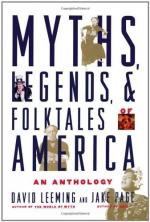|
This section contains 7,706 words (approx. 26 pages at 300 words per page) |

|
FOLKLORE. Folklorists have been interested in religion as an area of research since the beginnings of the discipline in the nineteenth century, although early folklorists often conceived the beliefs of folk cultures not as religion but as superstition or magic. Many folklore scholars were grounded in scientific rationalism to the extent that they dismissed the beliefs of the folk as ignorant superstition, even if these beliefs were part of systems that functioned in ways similar to organized religion. By the early twentieth century, folklorists and other social scientists recognized the link between religion and folk belief, but condescended toward both. From the positivist perspective of folklore studies as a "historical science," superstition and religion were both considered prescientific. In 1930 Alexander Krappe stated in The Science of Folklore: "Superstition, in common parlance, designates the sum of beliefs and practices shared by other people in so far as they differ...
|
This section contains 7,706 words (approx. 26 pages at 300 words per page) |

|


